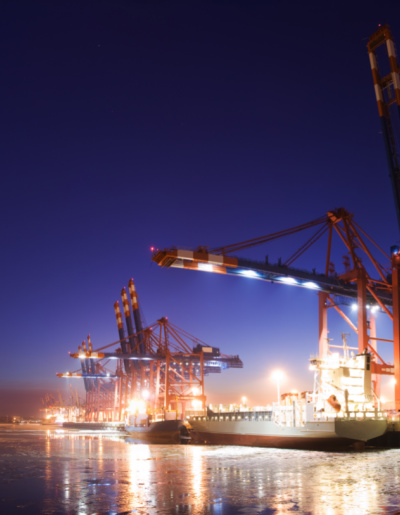Trusted Customs Advisors
Trade Pacific regularly advises U.S. importers to determine proper classification, valuation, rule-of-origin issues, and whether antidumping/countervailing duties apply.
We advise companies responding to a variety of inquiries and investigations from U.S. Customs and Border Protection (CBP), and work with clients to develop strategies to accurately assess and minimize the duties they must pay.
How We Can Support You
Customs Counseling
Our customs attorneys assist clients in reducing costs and delays on their entries of merchandise into the United States. Our expertise includes a wide range of Customs matters, including classification, valuation, country of origin and marking, and numerous other areas relevant to compliance with CBP’s requirements.
Administrative Proceedings and Audits
CBP has increased its enforcement and audit efforts. Trade Pacific’s attorneys work with clients to prepare internal and regulatory audits, as well as assist in preparing responses to requests for information from CBP (CF 28), notices of action (CF 29s), and 1592 penalty investigations.
Ruling Requests
CBP’s ruling program is intended to provide the international trade community with a transparent and efficient means of understanding how a particular import will be treated once it arrives in the United States. Our lawyers work with importers to attain prospective rulings from CBP that all members of the trade community can rely and depend on wherever goods are imported in the United States.
Protests, Post Summary Corrections, and Prior Disclosures
Trade Pacific’s attorneys advise clients on ensuring compliance and limiting duty liability through protests, post summary corrections, and prior disclosures at CBP. Our customs attorneys work with importers to receive the proper disposition of entries and refunds of duties by filing on protests when CBP liquidates entries incorrectly. We advise importers regarding post-summary corrections to entries presented and on making prior disclosures to CBP in order to restore compliance with CBP requirements and avoid additional duties, fines, or penalties.

Specialized Customs Practices
EAPA Investigations
Trade Pacific’s attorneys counsel clients through EAPA investigations, administrative reviews, and judicial appeals. Our Customs attorneys work with importers to respond to requests for information from CBP, formulate legal strategies for litigation, and implement systems to avoid potential allegations from interested parties.
Forced Labor – Section 307
Section 307 of the Tariff Act of 1930 (19 U.S.C. §1307) prohibits the importation of any product that is mined, produced, or manufactured wholly or in part by forced labor, including forced or indentured child labor. Customs enforces the import prohibition through Withhold Release Orders (“WRO”).
Trade Pacific is a leader in developing reliable and responsible systems for ensuring and demonstrating the absence of forced labor in supply chains. We worked with key parties in the seafood industry to develop systems of compliance and reporting to respond to investigations on forced labor by U.S. Customs. In addition, we have counseled solar cell and solar module exporters and importers subject to WRO relating to silica, silicon metal, and polysilicon to demonstrate that their supply chains are not implicated by allegations of forced labor.
Whether by Customs own initiative to issue a WRO or by Congressionally mandated presumptions of forced labor, such as the Uyghur Forced Labor Prevention Act, Customs is increasingly scrutinizing labor issues in the supply chains of imports to the United States. We help importers and exporters develop systems for ensuring the absence of forced labor and a capability to prove the absence before U.S. Customs.
